Zero-molding solves silver and gas burn achieving low clamping force and low injection pressure
Company Profile
AMERICAN DENKI CO., LTD. is a manufacturer of wiring devices for industrial and power application. They have been manufacturing large molded products using nylon resin for over 40 years, ahead of their competitors. Using their unique know-how cultivated over the years and their own mold, the company excel at producing beautiful finishes even with flame-retardant grade V-0 resin, which is difficult to mold. Molded products are available in a wide variety of colors, including black (dark gray) and white (light gray), which are their own original colors, and in order to prevent customers from inserting the wrong outlets, they have proposed color-coding them by system, such as red and blue.
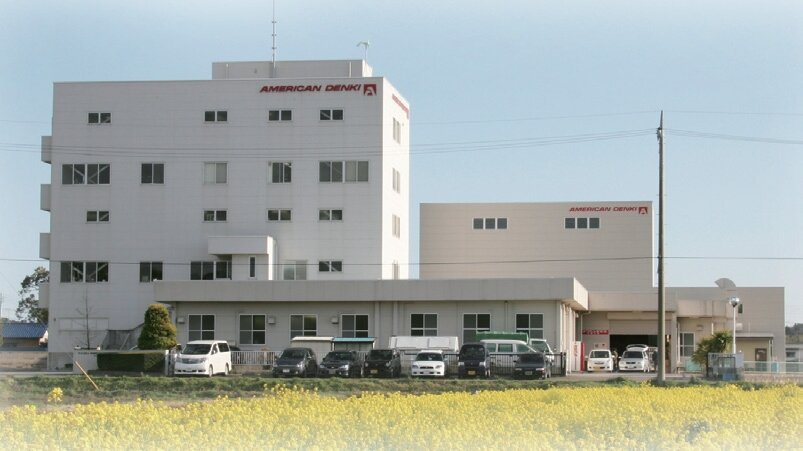 Factory of AMERICAN DENKI CO., LTD.
Factory of AMERICAN DENKI CO., LTD.
Customer Issues
They mold outlets, which have many holes and complex structures that tend to increase cycle time and increase the residence time of resin in the screw assembly. In addition, the resin used is nylon containing flame retardant (PA66),which generates a large amount of gas, causing gas to remain in the screw assembly, resulting in many problems with silver and gas defects. Also, as a result, dirt easily accumulates in the gas vent, and the frequency of mold maintenance was also recognized as an issue.
How we supported
1. Finding the best molding process
To solve this problem, the mold with the highest defective rate was brought to our Chiba Technology Center, where our process engineers conducted a trial starting from determining the molding processes. After creating the process for good products, we confirmed the mold clamping force waveform and the actual peak mold clamping force result values while lowering the mold clamping force to find the limit value. As a result, two hours after the start of the trial, we were able to produce a molding that did not produce any silver or gas burns. The low clamping force promotes gas escape and improves the gloss of the product surface. They also appreciated the high reproducibility of the results when retrying the trial after some time has elapsed.
2. Establishment of the technology
AMERICAN DENKI CO., LTD. is a pioneer in nylon molding, a technology that is difficult to mold, and the company has been worked hard to come up with process for its products.
The engineers who gained a deeper understanding of the theory and setting methods of molding process at the briefing session are now applying it to a variety of molded products.
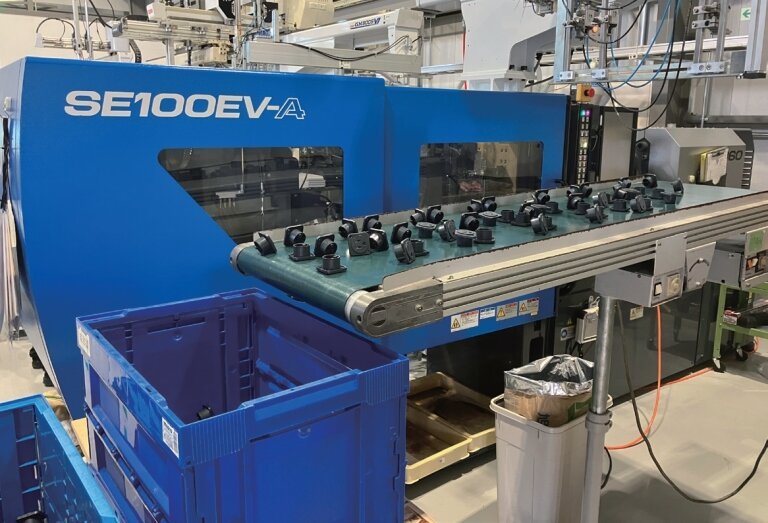 Molding scene
Molding scene
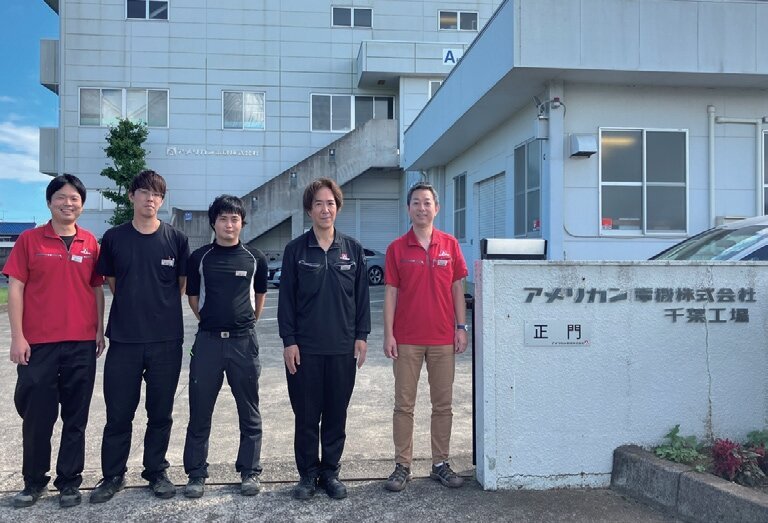 From left: Mr. Yamada, Mr. Masuda, Mr. Komiya, Mr. Kotani, and Mr. Koike
From left: Mr. Yamada, Mr. Masuda, Mr. Komiya, Mr. Kotani, and Mr. Koike
Specific Effects
Reduced defective rate
They told us that "the low injection pressure function (FFC) prevents short shots by not forcing the resin in." Furthermore, while the conventional wisdom was that molding was done with high mold clamping force and high injection pressure, the low clamping force function (MCM) reduces gas retention in the mold and suppresses silver and gas burns, resulting in "defective rate reduction from approximately 12% to approximately 2.5%." Dramatic improvements have been realized.
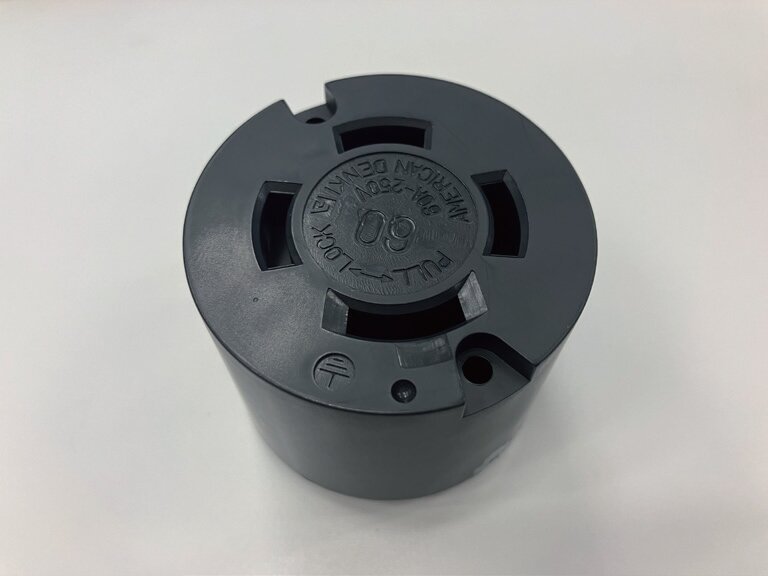 Molded product
Molded product
Reduced cycle time
We heard that the effect of reducing the mold clamping force using the low clamping force function (MCM) has not only reduced the defective rate but also shortened the molding cycle time.
Ease of understanding the interface (screen)
" Holding pressure and speed control are displayed as waveforms on the screen, so if there is a problem, it is easy to identify the cause," they said. In addition, process setup assistant function, which allows you to setting step by step, has been well received for its easy-to-use interface (SPS).
Reduced maintenance frequency
The gas vents have also become less clogged, and previously maintenance was required every two to three hours, now molding can be continued throughout the day without any problems.
They are also very satisfied with the after-sales service provided through regular visits.
AMERICAN DENKI CO., LTD.'s future strategies
After its foundation as trading company in 1926, AMERICAN DENKI CO., LTD. imported wiring devices from the United States. Since 1929, they have been engaged in the planning and designing their own products, and have also started manufacturing molds.
They implemented an integrated in-house process for molding, assembly, inspection, and packaging of products, enabling comprehensive internal production management.
Although wiring devices are usually being out of view for most people, the products of AMERICAN DENKI CO., LTD are well-known in the industry for their high quality and are specified for use in large theme parks, commercial facilities, factories, etc.
AMERICAN DENKI CO., LTD. is approaching their 100th anniversary in 2026. They continue to strive for excellence, focusing on acquiring external technical qualifications and further improving their quality standards.
Products
 From left to right: Waterproof Panel Lift Cover / Polycarbonate Plastic Cover / Duplex Device Outlet / Nylon Cover
From left to right: Waterproof Panel Lift Cover / Polycarbonate Plastic Cover / Duplex Device Outlet / Nylon Cover
Website
https://en.americandenki.co.jp/
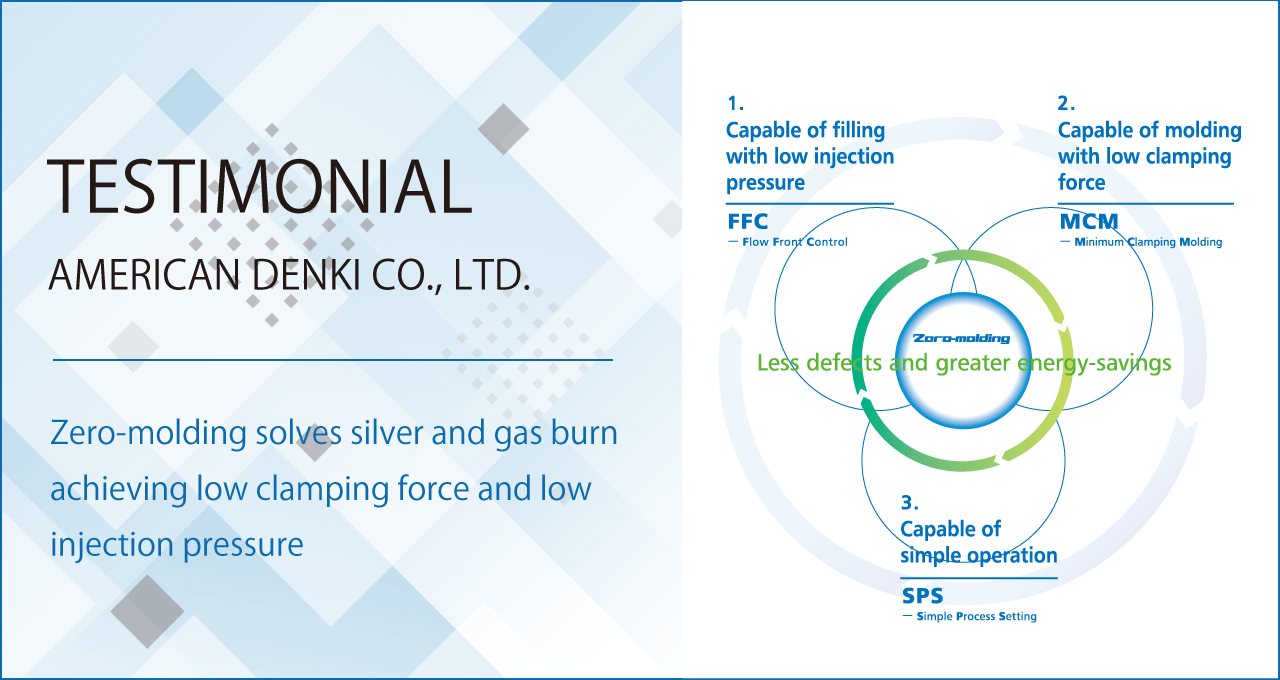
 Factory of AMERICAN DENKI CO., LTD.
Factory of AMERICAN DENKI CO., LTD. Molding scene
Molding scene From left: Mr. Yamada, Mr. Masuda, Mr. Komiya, Mr. Kotani, and Mr. Koike
From left: Mr. Yamada, Mr. Masuda, Mr. Komiya, Mr. Kotani, and Mr. Koike Molded product
Molded product From left to right: Waterproof Panel Lift Cover / Polycarbonate Plastic Cover / Duplex Device Outlet / Nylon Cover
From left to right: Waterproof Panel Lift Cover / Polycarbonate Plastic Cover / Duplex Device Outlet / Nylon Cover